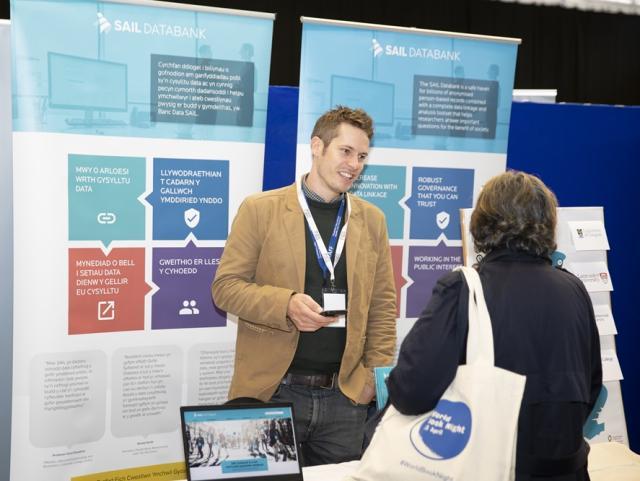
SAIL Databank praised for role in award-winning research
30 May
SAIL Databank, funded by Health and Care Research Wales, has been praised for its support and involvement in research carried out by the Population Data Science (PDS) team at Swansea University, which has led to two prestigious accolades at the HDR UK Annual Awards.
Members of the PDS team were part of the CVD-COVID-UK / COVID-IMPACT Consortium, which collectively received the Susannah Boddie Award for Impact of the Year. This award honours work that has had the greatest impact on people’s lives through the effective use of health data, with strong involvement of patients, carers, and the public throughout the research process.
Their project, titled “First whole-population health data study delivers huge public benefits“, provided crucial insights into the safety of COVID-19 vaccines across different demographic groups. The research addressed concerns around under-vaccination and helped to inform national vaccination strategies. By harmonising and mobilising data on a national scale, the Consortium laid the foundation for future UK-wide, population-level research far beyond COVID-19.
A panel of expert reviewers praised the project’s scale and tangible outcomes, stating:
“We recognise this project’s remarkable contributions to data science and public health. We were particularly impressed by the project’s large-scale team science approach, mobilising data at a national level to directly influence COVID-19 vaccination policy and public discourse. The project had a clear and tangible impact on thousands of lives.”
In addition to their Impact Award, members of the PDS team were also named in the Team of the Year, celebrating excellence in collaborative, interdisciplinary health data research.
The winning project, “Tackling missing ethnicity data and biases in research“, was led by a working group of the UK Health Data Research Alliance. The group produced a White Paper outlining practical steps to improve the accuracy and consistency of ethnicity data in health records—essential for removing biases and enabling fairer healthcare delivery.
Through wide engagement across sectors—including public contributors, academics, data custodians, and policymakers—the team championed a multidisciplinary, community-led approach to tackling a long-standing data challenge. Their work guides future policy and clinical decisions by ensuring a clearer, more representative understanding of population health.
The judging panel commended the group’s co-creation approach and impact on health inequality, describing them as:
“A truly multidisciplinary group of professionals who adopted co-creation at its heart. Their work stands as a testament to the power of collaborative, community-driven efforts in tackling complex issues.”
Professor Ashley Akbari, from Swansea University, said: “Both awards reflect the Population Data Science team’s commitment to driving real-world health improvements through impactful research and exemplary team science. This work and awards would not have been possible without the support, involvement and efforts of a great many people across the SAIL Databank and SeRP teams, as well as wider at Swansea University in enabling this impactful research.”